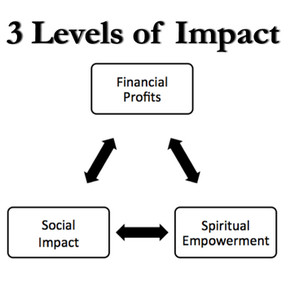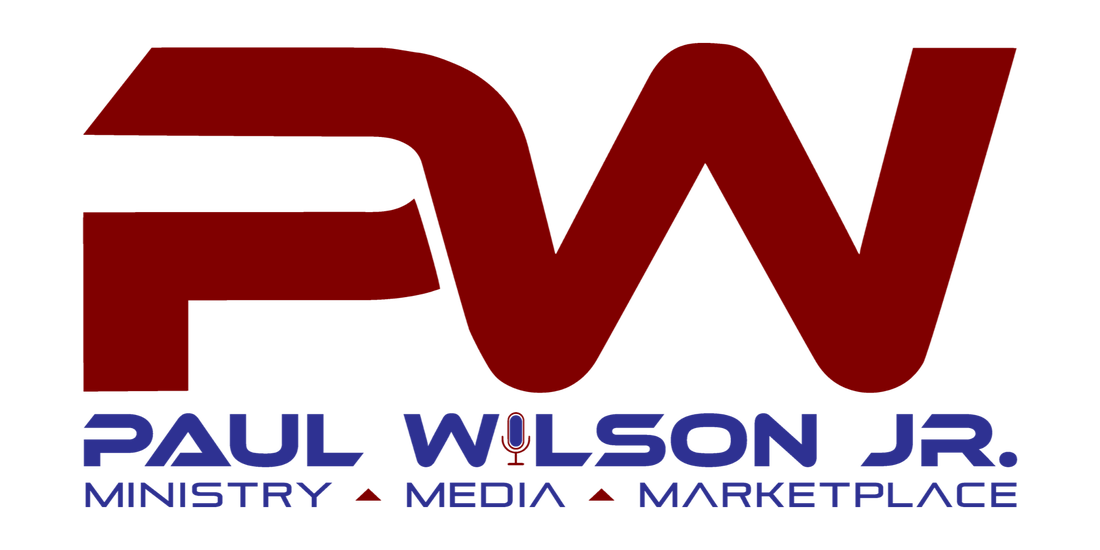|
Although big businesses get most of the media coverage, the truth is in the United States, small businesses are the engines of job growth and economic growth. Let’s look at a few statistic about small businesses according to most recent date [1]:

In light of these statistics, what are the major implications for mission driven entrepreneurs? I believe they are at least 3-fold: financial, social, and spiritual.
So if God called you into business, He wants your business to make a major impact in the world. Just seek His direction for the specifics and watch your business do more than all you could ask, think, or imagine. ______________________________________________ [1] Sources: http://sbecouncil.org/about-us/facts-and-data/ and https://www.sba.gov/sites/default/files/FAQ_March_2014_0.pdf
God gives every man/person a purpose that comes gift-wrapped in a dream. Our marketplace assignment is one of the major strategies God uses for us to fulfill that purpose. These affirmations would help to reinforce who God has called you to be and what he has called you to accomplish for His glory through your business.
1) MY IDENTITY AFFIRMATION
2) MY INSIGHT AFFIRMATION
3) MY IMAGINATION AFFIRMATION
As mission driven entrepreneurs we must understand the difference between the people to which we sell our products and services versus the people we've been called to serve through our businesses. Many Christians make the mistake of trying to sell their products and services to the people they have a desire or passion to serve. Unfortunately, this produces unintended consequences.
One key reason is that usually the people you're called to serve can't afford to pay you the necessary value for what you have created. That then causes you to struggle to stay in business because your sales will be low or you wrongly assume you shouldn't deal with them altogether because you aren't generating any revenues. So the issue is not that you shouldn't work with them. The issue is that you defined them the wrong way. You mistakenly tried to sell to the people you were called to serve. I recently heard the story of a real estate developer whose business model is selling unique, high-end houses to the ultra-rich so he can use his profits to serve the ultra-poor. He clearly understands his calling to serve people by using a profitable business model directed toward customers who can fully afford to pay for what he sells. Here are 3 things you can do to avoid the trap of trying to sell to those you're should be serving... 1) Distinguish between who you sell to versus serve. Be very clear about these two different groups of people, which will then create boundaries for how you interact with them. 2) Develop a detailed persona for your target customer. The more specific you get about defining your target customer the easier it will be to tailor your sales activities to the right audience. This will allow you to reduce customer confusion and build a profitable revenue model. 3) Determine how you want to serve your target community. Just as you clarify your target customer, you also must clarify your target community and how you want to engage them. The way you choose to help them will create a clear purpose, intentionality, and impact. As you recognize the people God called you to serve, ask Him for whom you should sell your products and services so that your business can grow profitably and you can then use your profits to bless the others. |
Watch The Disruptors Streaming Bible Study!
Struggling Christian entrepreneur? My new ebook was written just for you!
Get the app that connects your career, calling & community!
Connect Your Faith With Your Work

Dream B.I.G. in 3D will take you on an internal treasure hunt to connect your career path to your purpose. Click here to learn more...
Popular PostsArchives
February 2018
Categories
All
Link RollAmos Johnson Jr.
Brotha Online Magazine Business as Mission Greater Seas Marketplace Chaplains Metro Merge Milestone Motivation Partners Worldwide Sacred Enterprises The High Calling TIFWE.org |
|
Contact us today: 678.310.3017 ❖ [email protected]
© 2009 - 2024 Paul Wilson Jr. All rights reserved. |




 RSS Feed
RSS Feed




